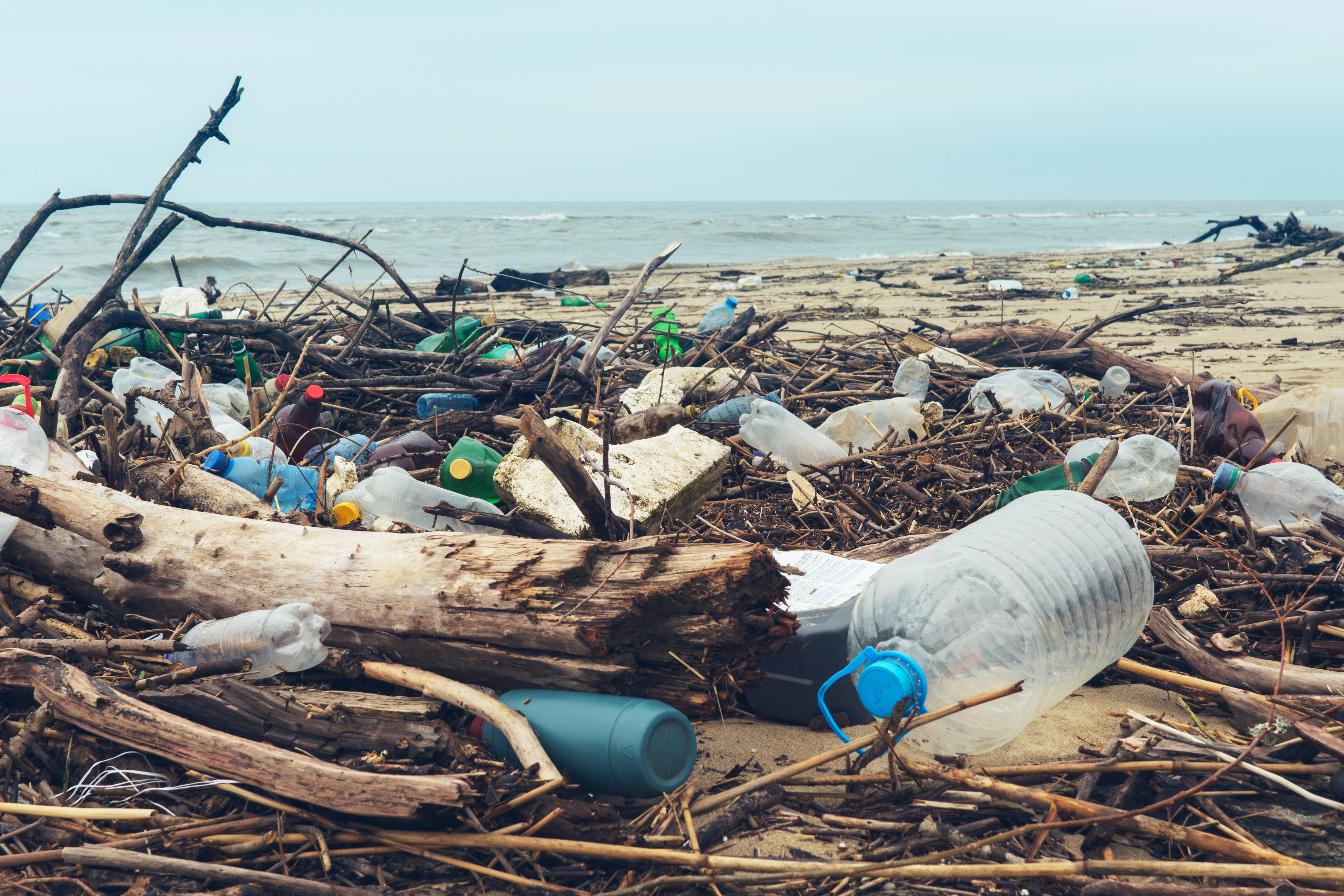
If you stop and think about it, mass-produced plastic products have really only been around since the mid-1900s, when companies began looking for ways to use it post-World War II in order to maintain their production facilities.
Just a few short decades later and we’ve got the North Pacific Garbage Patch, which is now roughly three times the size of France, a slew of marine animals accidentally ingesting the stuff and dying, and plastic in the water now appears to be affecting our health too. Add in a surplus of 300 million tons of plastic that is being produced every single year—half of which is for single use—and it’s a monster of a problem.
Want to do your share to help? Here are few ideas to fight the good fight.
Bring your own bags to the grocery store

By this point, most of us have an environmentally friendly canvas tote or two. It’s remembering to bring these things to the grocery store that’s actually the problem. Leave yours in a space where you’ll remember them (even if that space is the trunk of your car), and make a habit of buying new reusable bags rather than plastic ones when you do forget them. Having to spend the extra few bucks is a great motivator to remember bags the next time.
Use metal straws

Plastic straws are wreaking havoc on the environment, which is why an increasing number of people are refusing them. Do your part and invest in a pack of metal straws, and then refuse the plastic variety the next time you eat out. Just don’t drink and drive with them, please… or give them to kids. (Instead, pour your kids’ drinks into a reusable, kid-friendly cup.)
Use mesh, cloth bags for produce

While you’re avoiding plastic shopping bags, consider avoiding those little plastic bags that hold your produce too. If you have one or two larger items just throw them in your cart as-in, or else invest in some breathable, mesh produce bags instead.
Invest in reusable snack bags

Whether you like to have snacks on the go or you have little kids, it’s always a great idea to invest in some reusable snack bags. They come in a variety of sizes, patterns, and closures (from Velcro to zippers), making them the perfect on-the-go option.
Pack a set of bamboo utensils for your lunch

If you’re eating at your desk, odds are you probably packed metal utensils. But if you’re the type to eat out, you’re probably using tons of plastic forks, knives, and spoons, which are obviously not the greatest for the environment. The solution? Pack a set of bamboo utensils in your purse or satchel. They’re lightweight, compact, and environmentally friendly.
Bring a water bottle with you (and recycle your beverage containers)

Beverage bottles are one of the worst offenders out there in terms of environmental impact. Reduce your footprint by using a refillable bottle while on the go. And when you do use a plastic bottle, be sure to recycle it.
Buy a water filter

Meanwhile when you’re at home, be sure to invest in a water filter rather than using plastic bottles or giant plastic containers to hold your H2O.
Try beeswax or paper wrapping

Plastic wrap is another terrible offender, one that many of us use. If you want to keep your food fresh, invest in some beeswax wrapping (which may even keep your fare fresher for longer), instead. Don’t have beeswax? Good old-fashioned paper works too.
Use glass containers

Speaking of plastic wrap, plastic containers are slightly better than the use-and-go bags, but not completely. Opt for glass jars and containers, which are safer to use in the microwave, to store your leftovers instead.
Bring your own coffee cups to the coffee shop

Many coffee joins dole out java in paper cups, but there’s a plastic lining and a plastic lid to worry about. Avoid all of these products altogether by bringing your own cup. Besides, if you invest in a good one, your beverage will probably stay warmer for a lot longer anyhow. Win-win.
Use a reusable K-cup

Who doesn’t love a quick cup of coffee in the morning? That’s probably why single-serve cups are becoming increasingly popular. Depending on where you live, your K-cups may be recyclable, but not always. If you truly want to be environmentally sound, use the reusable K-cup filters instead.
Try a reusable freezer bag

Meal preppers everywhere inevitably use giant plastic bags to store their fare in the deep freezer, but now there’s a better alternative in the form of silicon bags. They’re freezer, microwave, and dishwasher friendly, and you can even write on the outside so that you know what you’ve frozen within.
Volunteer

No matter what you do at home, there’s always the larger problem of existing plastic waste. If you want to help clean up the mess we’ve already made, what better way than volunteering your time? Check out your local community programs to see where you can help, or register for a national program like the Great Canadian Shoreline Cleanup.
